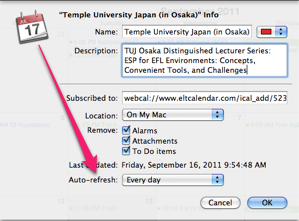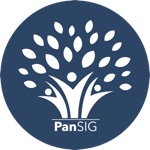CEFR and Language Portfolio SIG of JALT:
�Critical, Constructive Assessment Of CEFR-Based Language Teaching in Japan and Beyond
Date: Saturday, May 31st, 2014 Time: 9:00 AM - 6:00 PM
Speaker: Several speakers
Description:
In recent years there has been a vivid discussion in Japan and elsewhere about language learning curriculums and frameworks, especially the Council of Europe's Common European Framework of Reference for Languages (CEFR). It is important to be aware that the CEFR and its can do statements must be adapted and changed to suit the specific context they serve. The basic theme of this project focuses on the implementation of the CEFR in language education institutions, with a focus on generating ideas of current practice that can be adapted and implemented by others. It is possible for the focus to be pluricentric, but currently it is proposed the project will be centred around Japan. Other regions of Asia, Europe and America can also be represented. The focus will be on principles and practices that effectively disseminate transparent and suitably scaffolded learning objectives, while focusing on an action-oriented approach that also promotes life-long, autonomous learning.
The focus of the project is action-research based, following an action-reflection cycle (McNiff & Whitehead, 2009):
- observe what is going on
- think about how they can improve it
- act
- gather data
- show transformational nature of the actions
- test and modify existing thinking and practices
- communicate the significance, in order to encourage new ways of acting.
We hope the results of the enterprise can encourage others to enact action-reflection cycles on local levels. We intend to have a one-day conference where participants will present preliminary ideas about how practices have addressed some key questions featured below. Proposals should address principles and practices in these two inter-related areas: the implementation of the CEFR in curricula and classrooms. This mini-conference will be held in Japan, in May 2014. It will be possible to make use of technology to participate from a distant location.
We are seeking proposals for presentations that address general issues such a great dilemma when contextualizing the CEFR: the more it is adapted to a specific context, the greater the possibility that the CEFR will lose its validity and the original language proficiency scales will be altered in an unhelpful way. The localization of the CEFR proficiency levels means a departure from the CEFR global standards and raises issues such as how closely the localized scales are related to the CEFR scales. The localization must be done to fit each language course but should be done in principled ways so that the original scales are kept intact. This project should suggest the ways in which the CEFR should be contextualized.
In general, submissions should address the issue that although the CEFR has been widely applied to curricula and course improvement, resulting in positive effects on language education, implementation is not without difficulty. To adapt the CEFR to the entire language program, teachers and other stakeholders must share its basic philosophy and ideas. The amalgam of top-down and bottom-up implementation with a strong leadership is necessary. How has this leadership, and what specific practices, been implemented? It is possible that the adverse effects of language testing, and other language education practices, may be reversed should a more learner centred pedagogy to produce more effective and autonomous learners of language.
It is difficult to bring about change though, particularly in areas such as curricula, and teaching practices. It is within such areas that important issues should be critically, but constructively assessed and discussed. Specifically, in regard to Curricula, some key questions include: What type of implementation has been adopted? What specific practices have been implemented? What practices have been seen to be effective? How are all stakeholders involved? Has the CEFR promoted a system for in-house evaluation of curricula and learning targets? Do curricula and courses include transparent and concrete learning objectives, with accepted can do statements at the centre? Is it possible to compare the results of instruction in different classes? Can the people engaging in CEFR-based teaching and learning develop a sense of ownership?
These two latter points connect to Classroom instruction. Key questions specific to this area include: Do can do checklists serve as the key reference point for processes of reflective teaching/learning in which self-assessment plays a central role? How? What are the interpretations, of teachers, students and other stakeholders, of the philosophy and ideas of the CEFR? Are the CEFR-based materials (textbooks, teaching content etc.) action-oriented, and easily applicable by both teachers and students? Can all readily see the benefits of the CEFR-based approach for their own teaching/learning? Is autonomous learning beyond the specified materials (e.g. textbooks) supported and encouraged? If so, how? Full details of the conference schedule are available online.
Organization: CEFR and Language Portfolio Special Interest Group of the Japan Association for Language Teaching (CEFR and Language Portfolio SIG of JALT)
Cost: free
Venue: Chukyo University, Nagoya (Room 523 in Building no. 5; map)
Location: Nagoya City, Aichi Prefecture, Japan
![]() Add this to iCal
Add this to iCal
![]() (Need help?)
(Need help?)
![]() Add to Outlook
Add to Outlook
![]() (Need help?)
(Need help?)
You can add this event to your iCal calendar.
- Click on the iCal icon. Your iCal software will start.
- Click 'Subscribe':

- Under 'Auto Refresh', select 'Every day' in case the the basic details change:

You can add this event to your Microsoft Outlook calendar.
- Click on the MS Outlook icon.
- See what happens.
- Tell us what happens. I don't have MS Outlook on a Windows computer, so I can't test it.
- If you click on the icon and nothing happens, do this:
- Right-click on the icon and save the file.
- According to Microsoft's support page, in Outlook's File menu, you should click Import and Export.
- Click to select Import an iCalendar or vCalendar file (*.vcs), and then click Next.
- Click to select the vCalendar file you've just saved, and then click Open.
Contact CEFR and Language Portfolio SIG of JALT
Website: cefrjapan.net/
Email QR Code:





